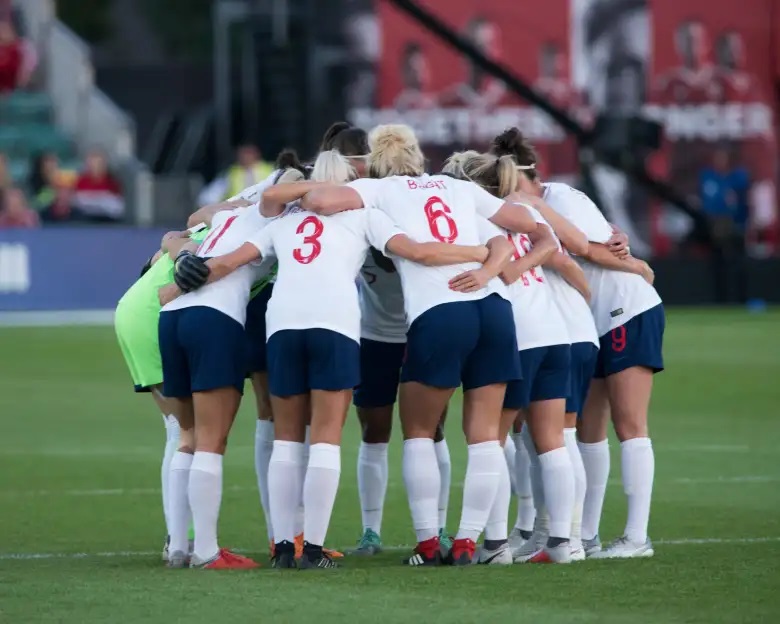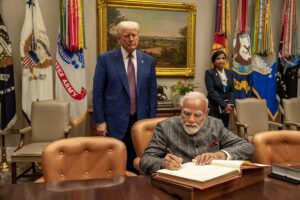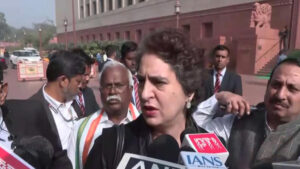Does Sportswashing Even Work?

Sportswashing refers to the ways in which a country invests in sports in order to promote its reputation on a global stage and deflect attention away from less favourable perceptions of its actions and institutions (Representational Image)
The cancellation of the 2026 Commonwealth Games by authorities in Australia has led people to question the relevance of a competition based on relations between a fading imperial power and its former dominions.
Interestingly, one term that has not been applied to this event is ‘sportswashing’. This is a curious oversight given that sportswashing has become a recent feature of media reporting around high-profile sporting events, teams and players.
It refers to the ways in which a country invests in sports in order to promote its reputation on a global stage and deflect attention away from less favourable perceptions of its actions and institutions.
Normally, it is only non-Western states that are accused of sportswashing; Saudi Arabia, Russia, Qatar and China are obvious examples. But if the term is to mean anything it not only has to be clearly defined but also applied in a consistent manner.
So, when trying to assess the rise of sportswashing, perhaps the first question to ask is why countries are prepared to spend so much money and effort to build an association with sports.
Sport matters because it plays a significant role in the lives of large numbers of people and can be used to target the attention of particular groups — national, class-based, gender and age.
In a fragmented media landscape, it is also one of the few remaining forms of ‘content’ that can bring together large audiences. This makes it as attractive to media companies and sponsors as it does to governments and states.
Therefore, one of the key contributions of sportswashing is that it specifically draws attention to the ways in which an association with sports is used to try and burnish a country’s reputation.
Indeed, the role of various media organisations and platforms in these wider debates, whether as advocates or critics, is worthy of further attention.
This is particularly the case in relation to sports fans who can have a key role to play in supporting an owner or organiser that they believe is likely to offer their athletes, team or sport greater success.
Although the term sportswashing was only introduced seven years ago, the metaphor of washing has a much longer history and has been applied to a range of different situations.
The metaphor of washing was first used to highlight deception, cover-up and distraction, with whitewashing being used to refer to the covering up of corruption and criminal activities.
Next comes greenwashing, which points to forms of communication designed to generate positive beliefs about an organisation’s environmental record.
The growing visibility of greenwashing has encouraged others to adapt the washing metaphor and apply it to new areas of socio-economic and political life.
Most recently, pink and vegan washing have been used to critique corporations and governments that emphasise their support of LGTBQ and animal rights issues, respectively, in order to brand themselves as tolerant and progressive.
Over time, the use of the ‘washing’ metaphor has shifted in two notable ways, moving from a primary concern with the activities of corporates to also focus on government organisations and shifting from attempts at outright concealment to building associations with high-profile or well-regarded events, activities or people.
Although sportswashing has become a feature of mainstream media reporting, we require better ways of evaluating its impact to say whether it works.
Some of the current debates assume that the hosting of an event or purchase of a sports club naturally leads to favourable reviews or attitudes, whether among fans of a given club or the sport in general.
Research around the hosting of mega-events has shown a good deal of resistance from a range of sources. Therefore, we need to investigate who supports and who resists, through what means and channels and to what ends.
It would also be good to know more about the kinds of reputational capital (e.g. brand identity, goodwill, trust etc.) that are generated by such associations with sporting events, organisations and personalities and to what extent they persist over time.
Whether it can clearly add to our understanding of these processes, beyond a few news headlines, requires longer-term studies to assess public attitudes over time.
But in helping to focus attention on the ways in which sport is used to deflect and distract from the sometimes heinous activities of governments and other stakeholders around the world (both Western and non-Western), it has already served a useful purpose.
(Published under Creative Commons from 36oinfo.org. Read the original article here)





